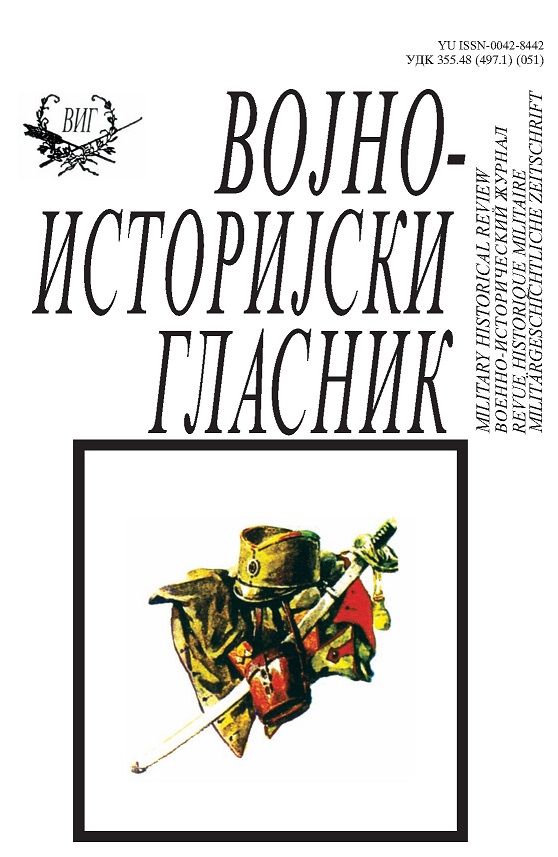Утицај совјетске спољне политике на војне односе између Румуније и Југославије у раним педесетим годинама двадесетог века
Influence of the Soviet Foreign Policy on the Military Relations between Romania and Yugoslavia in Early Fifties of the Twentieth Century
Author(s): Petre OprisSubject(s): Diplomatic history, Military history, Political history, International relations/trade, Military policy, Post-War period (1950 - 1989)
Published by: Institut za strategijska istraživanja
Keywords: Soviet Union; foreign policy; military relations; Romania; Yugoslavia; 1950s; armed forces;
Summary/Abstract: In the period when Romanian communists took control over the country, similar as in Hungary and Bulgaria, the peace treaty was signed in Paris by the Soviet dictate, which regulated the size and power of armed forces of the three former co-belligerents of the Third Reich. By the same Soviet dictate a violation of the peace agreement occurred when in the early fifties the coordinated process of Sovietization and equipping armies of the socialist bloc countries was launched. This process was crowned by signing the Warsaw Pact in 1955. Building of the Romanian armed forces on the new bases ran parallel with the crisis in relations between countries of IB with Yugoslavia. The crisis particularly reflected in the two neighboring countries and represented big economic burden, while we should not neglect the repressive measures members of the Serbian and other ethnic minorities in the border area between Romania and Yugoslavia were exposed to.
Journal: Vojnoistorijski glasnik
- Issue Year: 2010
- Issue No: 1
- Page Range: 72-84
- Page Count: 13
- Language: Serbian

